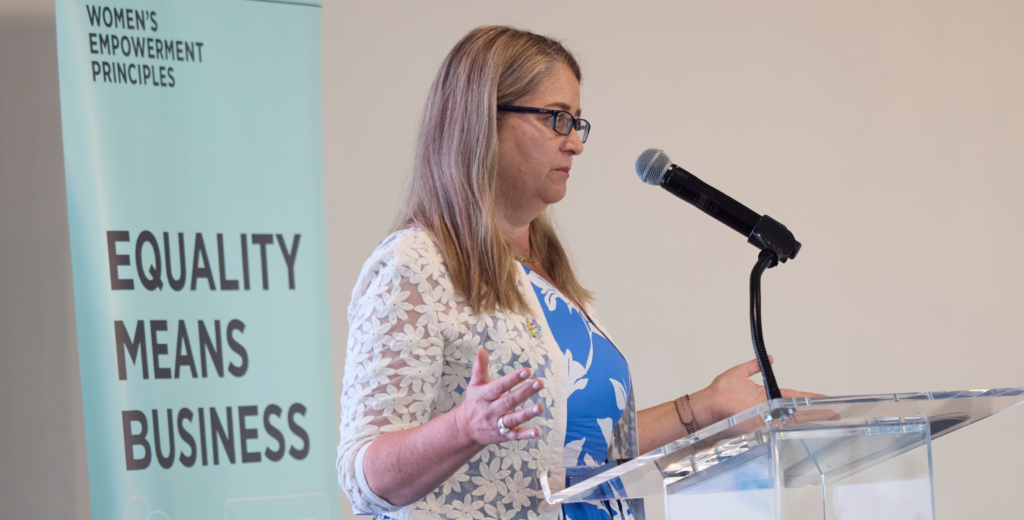
What is the status of gender equality today?
In a nutshell, things are not looking great. Gender equality remains unfinished business in every country in the world. Women and girls have less access to education and healthcare, too often lack economic independence and are under-represented in decision-making roles. Only 15% of the indicators of the fifth Sustainable Development Goals are on track to meet the 2030 targets, and it is predicted that it will take nearly 300 years to get there. What is really worrying is that one in three women will experience gender-based violence in their lifetime. Until we tackle this issue, achieving SDG 5 is going to be an uphill battle. As a workplace issue, it hinders women’s full employment and career growth.
How do you believe companies in the watch & jewellery industry can accelerate the agenda?
Companies in the watch and jewellery industry have a key role to play to accelerate the gender equality agenda. The Women’s Empowerment Principles (WEPs) lays out a framework of seven principles to show the path for companies. From an individual company perspective, the principles span corporate leadership that embed gender equality into the core of the business mission and operations and take concrete action in the workplace, marketplace and community. Gender-responsive corporate culture and accountability measures alongside tracking and transparency on progress and results are key to a sustainable and irreversible journey. However, there is a lot that the industry could do to jointly to accelerate gender equality. One example that comes to mind is adopting an industry-wide supplier code of conduct that propels gender equality forward throughout the industry. Just imagine the impact it could have.
What do you see as the role of the CEO and management to accelerate the agenda?
We have seen that when CEOs make the commitment to the WEPs, their companies are performing much better on gender equality than those who have not. The WEPs facilitates top leadership commitment and a sustainable follow through of the commitment. A truly committed CEO and management team walk the talk. They make gender equality a corporate priority and a day-to-day business concern for everyone in the company no matter their roles or levels. A CEO who holds their teams to account with formal reporting requirements, and who raises issues and include gender equality in management meeting agendas, puts in motion conversations and actions throughout the company that will help accelerate WEPs implementation.
What are some priorities the WEPs team is currently working on to support companies operationalize the WEPs framework?
We are working on a few different workstreams, including providing companies with an extensive toolkit of tools, resources, monthly webinars, training and capacity building. We have observed that many companies are already working on Workplace policies and strategies so we have shifted our priority to provide further guidance and engagement opportunities on integrating gender equality to the Marketplace – the core of business operations – as well as how to effectively engage with women and girls in local Communities. This includes the WJI2030-WEPs pilot on gender-responsive procurement and inclusive supply chains.
Another priority area for us is to better understand what impact WEPs signatories’ implementation has had. For example, among the current 10,000 signatories, how many have substantially increased the number of women in leadership positions, or engaged with gender-responsive companies in their supply chains? We hope to showcase these results in 2025.
How do you connect the dots between GE and the broader DEI agenda?
For us at UN Women, the dots are very clear. Gender equality is about human rights and treating all stakeholders with dignity and respect. It is about acknowledging that individuals hold multiple identities (e.g. gender, age, race, ethnicity and more) and highlighting that each face unique challenges. It is about creating a culture in which everyone, no matter their identity, can prosper and thrive inside the company, in its supply chain and in the community. So these are not separate agendas, they are one and the same.
What has been for your biggest learning curve working with WJI members?
I already knew that WJI2030 members are committed to sustainable development but learned through our collaboration what your challenges are and how you are tackling them. I look forward to continuing this collaboration in years to come to learn more from all of you.
